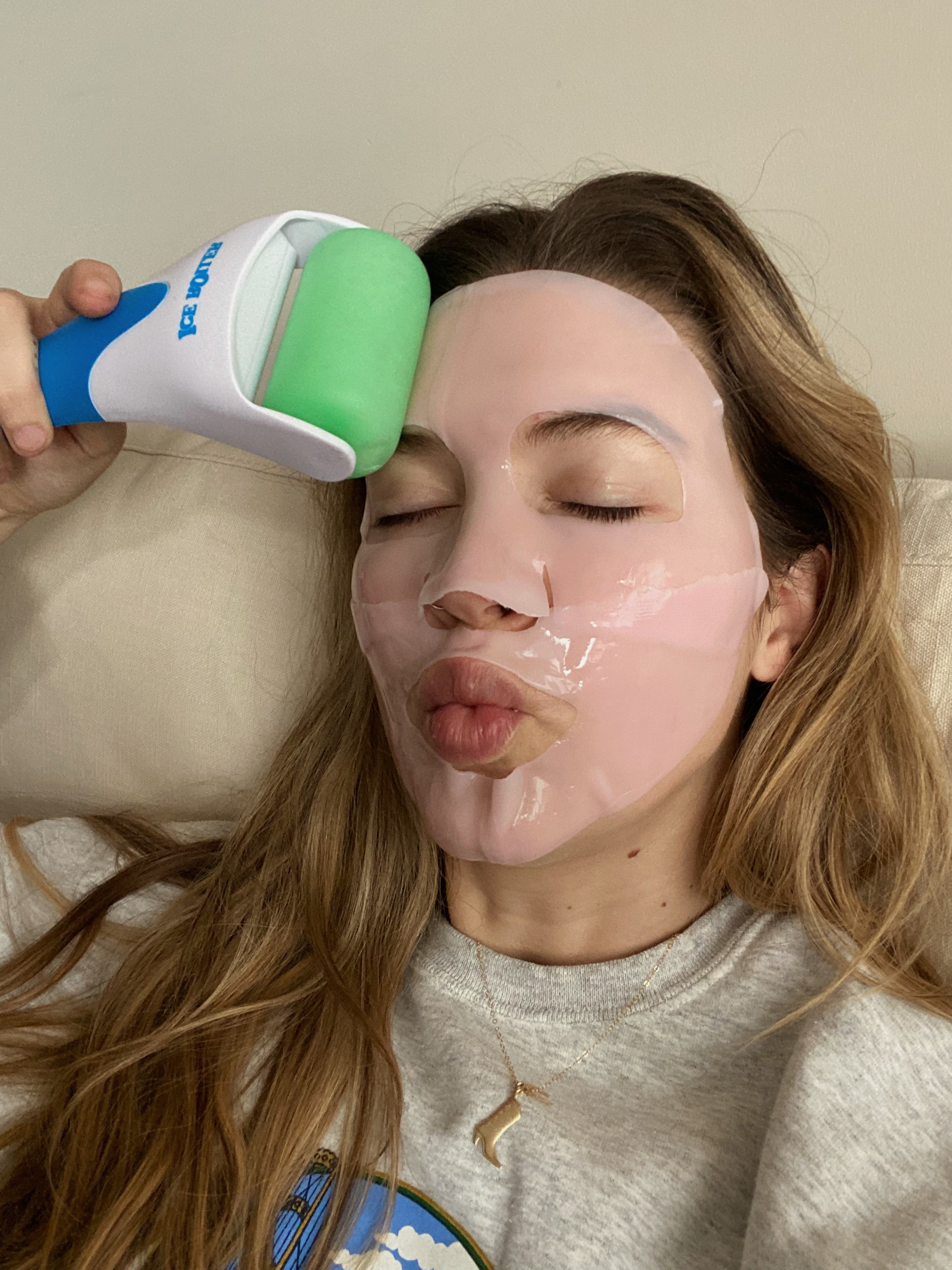How to Choose the Right Foundation Shade for Your Skin Tone?
Image Via Dupe Photos
When it comes to makeup, the foundation is a crucial step in creating a flawless base. However, choosing the right foundation shade for your skin tone can be overwhelming with the wide range of options available in the market. In this article, we will guide you on how to choose the perfect foundation shade that matches your skin tone, and provide tips and tricks to make the process easier and more effective.
Foundation serves as the base for any makeup look, and selecting the right shade is essential for achieving a natural and seamless finish. The right foundation shade can enhance your features, even out your complexion, and boost your confidence. On the other hand, a wrong foundation shade can make you look washed out, ashy, or overly dark, resulting in an uneven and unflattering makeup application.
Image via Dupe Photos
Importance of Choosing the Right Foundation Shade
Choosing the right foundation shade is crucial for several reasons. Firstly, it ensures that your makeup looks natural and enhances your features rather than masking them. Secondly, it helps in creating a harmonious look by blending seamlessly with your skin tone and neck, avoiding any visible demarcation lines. Lastly, wearing the right foundation shade can boost your confidence and make you feel more comfortable in your own skin.
Understanding Your Skin Tone
Before selecting a foundation shade, it's important to understand your skin tone. Your skin tone refers to the overall color of your skin, which can be categorized into three main categories: warm, cool, or neutral. Warm-toned skin typically has yellow, peachy, or golden undertones, while cool-toned skin has pink, red, or bluish undertones. Neutral-toned skin has a balanced mix of warm and cool undertones.
To determine your skin tone, you can use the vein test. Check the veins on the inside of your wrist in natural light. If your veins appear blue or purple, you likely have cool-toned skin. If they appear green, you likely have warm-toned skin. If they appear blue-green or have a mix of blue and green, you likely have neutral-toned skin.
Factors to Consider
Choosing the right foundation shade involves considering various factors. Apart from your skin tone, factors such as undertones, lighting conditions, and the type of foundation formula also play a crucial role. Let's dive deeper into these factors to understand how they impact the selection process.
Undertones and Their Impact on Foundation Shades
Undertones are the subtle hues that lie beneath the surface of your skin and can greatly affect how a foundation shade looks on your skin. Understanding your undertones is crucial as it helps in selecting a foundation shade that complements your natural complexion.
For warm-toned skin, foundations with yellow, peachy, or golden undertones are ideal, as they help in neutralizing any redness and create a warm and radiant look.
For cool-toned skin, foundations with pink, red, or bluish undertones are suitable, as they balance out the natural coolness of the skin and provide a natural-looking finish.
For neutral-toned skin, foundations with a balanced mix of warm and cool undertones work well, as they blend seamlessly with the natural complexion.
Tips for Choosing the Right Foundation Shade
Here are some tips to help you choose the right foundation shade for your skin tone:
Always swatch and test the foundation on your jawline or neck, as these areas are closer to your natural skin tone and can give you a better idea of how the foundation will look on your face.
Consider the lighting conditions where you will be wearing the foundation. Natural daylight is the best for testing foundation shades, as it provides the most accurate representation of how the foundation will look in different settings.
Don't be afraid to ask for samples or testers from beauty stores or makeup counters. This allows you to try the foundation at home and see how it wears throughout the day before committing to a full-sized product.
Take your time to find the right shade. Foundation shopping can be overwhelming, but it's worth the effort to find the perfect match for your skin tone.
Consider your skin type and formula preferences. Different foundation formulas, such as liquid, powder, or cream, may perform differently on different skin types. Choose a formula that suits your skin type and desired finish.
Testing and Swatching Foundations
Testing and swatching foundations is a crucial step in finding the right shade. Here's how you can do it effectively:
Cleanse and moisturize your face to create a smooth canvas for testing foundations.
Choose a few shades that you think may match your skin tone and swatch them on your jawline or neck.
Blend the swatches with your fingers or a makeup brush and let them sit for a few minutes to allow the foundation to oxidize and adapt to your skin.
Check the swatches in different lighting conditions, including natural daylight and indoor lighting, to see how the foundation looks in different settings.
Assess the swatches and choose the shade that best matches your natural skin tone, seamlessly blending into your neck without any visible demarcation lines.
Foundation Formulas for Different Skin Types
Different skin types may require different foundation formulas to achieve the best results. Here are some recommendations for foundation formulas based on skin type:
For dry skin: Look for hydrating and moisturizing formulas, such as liquid or cream foundations, that provide a dewy finish and help to hydrate the skin.
For oily skin: Look for oil-free or matte formulas, such as powder or oil-control foundations, that provide a matte finish and help to control excess oil.
For combination skin: Look for lightweight and buildable formulas, such as BB or CC creams, that provide coverage where needed without clogging pores or exacerbating oiliness.
For sensitive skin: Look for hypoallergenic and fragrance-free formulas that are gentle on the skin and reduce the risk of irritation or breakouts.
Additional Considerations for Special Skin Tones
Some skin tones may require additional considerations when choosing a foundation shade. Here are some tips for special skin tones:
For deeper skin tones: Look for foundations with rich pigmentation and a wide range of shades that cater to deeper skin tones. Avoid shades that are too ashy or too light, as they can make the skin look dull or grey.
For fair skin tones: Look for foundations with lighter coverage and shades that are not too dark, as they can make the skin look washed out or overly made up.
For mature skin: Look for foundations with a lightweight and moisturizing formula that provides a natural and youthful-looking finish. Avoid heavy or cakey formulas that can settle into fine lines or wrinkles.
Common Mistakes When Choosing Foundation Shades
Choosing the right foundation shade can be challenging, and here are some common mistakes to avoid:
Skipping swatching: Relying solely on shade names or online swatches can be misleading, as the color may look different on your skin. Always swatch and test the foundation on your skin to ensure an accurate match.
Not considering undertones: Undertones play a crucial role in finding the right foundation shade. Ignoring undertones can result in a mismatched shade that looks unnatural on your skin.
Not testing in different lighting: Foundations can look different in various lighting conditions. Always test the foundation in natural daylight and indoor lighting to see how it performs in different settings.
Settling for a close match: While it may be tempting to settle for a foundation shade that is close to your skin tone, it's important to find the best match that seamlessly blends with your natural complexion for a flawless finish.
Ignoring formula and skin type: Different foundation formulas perform differently on different skin types. Consider your skin type and formula preferences to ensure that the foundation works well with your skin type and desired finish.
Not considering special skin tones: Special skin tones, such as deeper or fair skin tones, may require specific considerations when choosing foundation shades. Avoid shades that are too ashy, too dark, or too light for your skin tone.
Overlooking your neck and chest: Your face may not be the exact same color as your neck or chest, so it's important to swatch and blend the foundation on your neck and chest as well to ensure a seamless transition between your face and neck.
Conclusion
Choosing the right foundation shade for your skin tone is essential to achieve a flawless and natural-looking makeup base.
By considering factors such as undertones, lighting, formula, and skin type, and avoiding common mistakes, you can find the perfect foundation shade that enhances your natural beauty.
Remember to always swatch, test, and take your time in finding the right foundation shade that makes you feel confident and beautiful in your own skin.
FAQs (Frequently Asked Questions)
Can I rely on online swatches to choose my foundation shade? It's best to swatch and test the foundation on your skin to ensure an accurate match, as online swatches can vary in color due to differences in screen settings and lighting conditions.
How can I determine my undertone? You can determine your undertone by looking at the veins on your wrist. If your veins appear blue, you likely have cool undertones. If they appear green, you likely have warm undertones. If they appear blue-green, you likely have neutral undertones.
What should I do if I can't find my exact foundation shade match? If you can't find an exact match, you can consider mixing different foundation shades to create a custom shade that matches your skin tone.
Should I consider my neck and chest when choosing a foundation shade? Yes, it's important to swatch and blend the foundation on your neck and chest as well to ensure a seamless transition between your face and neck, and to avoid any visible demarcation lines.
Can I wear any foundation formula regardless of my skin type? Different foundation formulas perform differently on different skin types. It's best to consider your skin type and formula preferences to ensure that the foundation works well with your skin type and desired finish.
READ MORE LIKE THIS:








Bye-bye bad skin advice! Hello healthy, glowing skin!